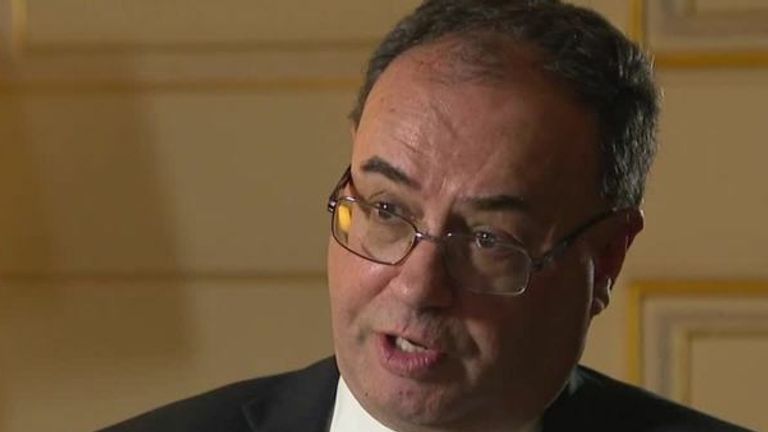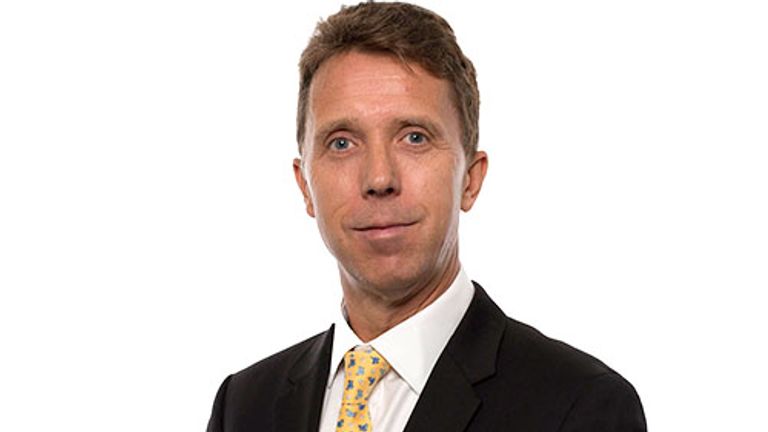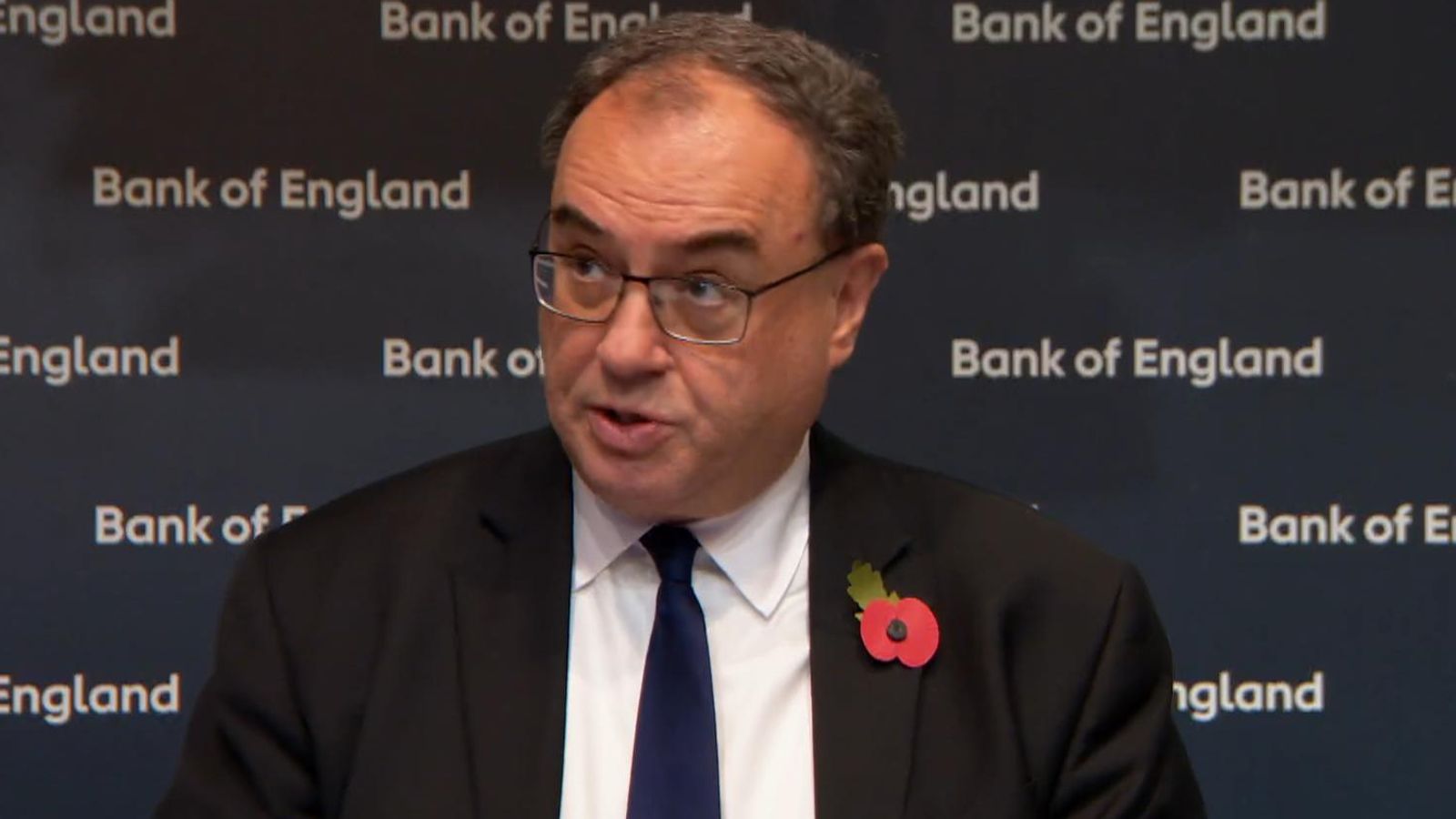[ad_1]
A member of the Bank of England’s rate-setting committee has warned he sees inflation exceeding its latest forecasts without more aggressive action.
Michael Saunders, an external member of the bank’s nine-member monetary policy committee (MPC), voted last week along with two others for a 0.5% hike in bank rate aimed at tackling the effects of the cost of living crisis.
But the three were out-voted when a 0.25% rise, to a 13-year high of 1%, was implemented.
While the bank has a 2% target for inflation set in its mandate, there is evident concern among a majority on the MPC that raising borrowing costs risks choking off already weakened economic growth.
Its update last week also warned, for the first time, of the risk of recession later this year.
But Mr Saunders used his speech to a Resolution Foundation think-tank event to warn that the bank’s credibility could not be taken for granted as inflation spikes.
While rate rises since December have added an estimated £1,300 to annual payments for millions of mortgage borrowers on deals which track bank rate, Mr Saunders argued the MPC should “lean strongly” against high inflation expectations.
He fears the impact of so-called secondary inflation adding to the problem down the track.
Bank governor Andrew Bailey has previously warned against wage rises which aim to match the pace of inflation – currently at a 30-year high of 7%.
The consumer prices index measure is tipped by economists to hit 9% – the highest level for four decades – when the next figures are released in nine days’ time.
The leap will reflect the impact of the 54% – or £693 – average rise in the energy price cap unleashed in April.
The Bank of England’s new central forecast for CPI inflation stands at 10.25% for the year’s end but there are already warnings that the cap could go up by a further £900 annually in October, potentially putting that forecast at risk.
Saunders said in his speech that inflation and key measures of longer-term inflation expectations were uncomfortably high and were feeding into underlying pay growth and services inflation.
“I put considerable weight on risks that, unless checked by monetary policy, domestic capacity and inflation pressures would probably be greater and more persistent than the central forecast.
“As a result, my preference has been to move relatively quickly to a more neutral monetary policy stance,” he explained.
“The strength of external costs is eroding real incomes and is likely to cap real spending,” he added.
“But, by creating a long period of above-target inflation, these external cost increases also may exacerbate the rise in inflation expectations and hence, with the tight labour market, could make it harder to ensure domestic inflation pressures return to a target-consistent pace.”
Financial markets have taken fright over the toxic cocktail of pressures facing the global economy which saw the US central bank raise its core rate by 0.5%.
The fallout from that action – with the promise of more US rate rises to come – and the Bank of England’s dire economic outlook has contributed to a fall in the value of the pound – currently at a near two-year low against the dollar at $1.22.
While the UK is not alone amid the inflation threat, the Bank was the first among major economies to issue a recession warning.
UK stocks have also slid with the export-heavy FTSE 100 losing more than 3.5% of its value over the past two trading days alone.
Stock markets are also slipping globally on fears that lockdowns in China, which have now hit Beijing, will only add to weaker output and inflationary pressures ahead.
AJ Bell analyst Danni Hewson said of the big picture: “If anyone was hoping a new week would bring a marked change in sentiment they were in for some serious disappointment.
“US markets opened lower and across Europe things just didn’t get any better. With a fresh set of tasty inflation numbers due out from a whole host of countries this week, including the US, investors are still very much in the sell camp.”
[ad_2]










